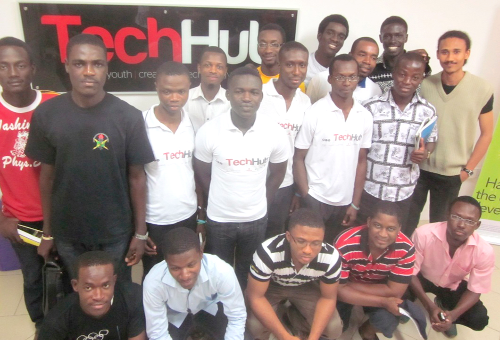
Quality higher education for 21st Century Ghana
The quest for rethinking and retooling for experiential teaching came from no other person than the iconic J. E. Kwegyir Aggrey (1875-1927). A doyen of quality education in the Gold Coast, he helped found Achimota School in 1925, in the worthy company of the first Principal, Rev. Alec Fraser, and Governor Gordon Guggisberg.
Advertisement
In his day, Aggrey admonished the intellectual elite, “Don’t tell me what you know; show me what you can do.” For Aggrey, experiential education offered the youth the lasting skills and the opportunity to be more responsive, more resilient and more capable in transforming the nation’s fortunes.
Aggrey envisaged education crowned holistically with the three Hs: Head (knowledge and intelligence), Heart (passion for humanity) and Hands (work and self-reliance). For him, teaching was deficient if it did not help the youth “to soar like eagles” through hands-on activities that raised the standards of living: The submissive alternative was to flirt around the fringes like passive turkeys marked for slaughter. To have been that insightful about a hundred years ago - when the same demands persisted in the 21st century – marked Aggrey clearly as a visionary.
Such productive concerns were corroborated by the constructionist view of education held by the American Educator John Dewey (1859–1952) who said, “If we teach today’s students as we taught yesterday, we rob them of tomorrow.” Surely, it was on that note that the presidents of Harvard University and Massachusetts Institute of Technology (MIT) teamed up and attracted about 200 educators to a summit convened (March 3 and 4, 2013) on both campuses, at the Radcliffe Gymnasium and the MIT Media Lab Complex. The faculty in attendance were to rethink fresher standards and retool their methods for a more productive teaching “to rise all boats.” A key concern was for them to help the youth engage experientially to solve the world’s myriad problems, and for the faculty – with “on-line” tools - to act more like coaches than lecturers.
At the British Council, Accra (January 31, 2015), the Baraka Policy Institute organised a seminar, “Access, Quality and Relevance in the Context of National Development.” In my keynote presentation, I borrowed a leaf from Aggrey to show that children (including the girl-child) possess an inbuilt God-given capacity “to soar like eagles.” I illustrated that point with two videos; one of a primary school girl teaching her peers algebra, and another of a Junior High School (JHS) girl teaching her class the structure of the human heart and how oxygenated and de-oxygenated blood flowed through the various arteries of the vital organ to sustain the human body.
In an experiential learning format (i.e. learning by doing), that same class mounted canopies in the vicinity of the school to screen residents for high blood pressure as an outreach community health programme to prevent heart diseases.
After the videos, I suggested to the audience that if the JHS girl - and others like her - were to be apprenticed to Ghana’s world class heart surgeon, Dr Kwabena Frimpong-Boateng, in the Thoracic Unit at the Korle Bu Teaching Hospital, it should not be surprising if she performed open heart surgeries by the age of 20. Ghana has such potentials in droves, but unfortunately they are made to waste away on the streets.
Quality education boils down to empowering the youth to chart experiential paths, knowing that geniuses are supported and encouraged that way. The days of merely sitting, memorising stuff - filling in the blanks - are fast receding into oblivion. As those petty chores pale off (and they must), they have to be replaced by bold initiatives that bring out the authentic abilities of the youth. Those may be measured by “Authentic Assessments” of real life accomplishments.
If ever there were a trend in modern education to seek out the outliers, it was to support the youth to be innovative, to work in teams as collaborators, to hypothesise, to follow their own curiosities, to discover their authentic selves and to prevail. The progressive world is moving in that direction, and Ghana must join the move.
The need for an upbeat functional education is a worldwide concern. In these days of information explosion through Google, Wikipedia and the rest, passing exams with glitzy scores is not that kosher anymore; it used to be so when information was so lacking that even the paltry possession of it was a sacred act. Today, mere cognitive abilities serve as indicators of possibilities only; they are not accomplishments. Today, open-ended tasks requiring students to creatively integrate different subjects, to find real life solutions to nagging societal and worldly problems, qualify as accomplishments.
It just happens that bold deeds (the so-called “moon shots” evolve out of experiential learning, but are unfortunately conspicuously absent in typical teaching environments in Ghana, and most parts of Africa. So then, the educators themselves have to be spirited and motivated beyond reproach so as not to dampen the spirits of the youth by cajoling them to memorise old notes, to conform, to settle in, to follow the pack, to blend in, to adjust to the mainstream, and so on. The caution is for teachers not to clip the wings of the youth and avoid causing them irreparable damages.
To do justice to the teeming youngsters in Ghana’s tertiary institutions, the faculty needed to Think, Reflect, Act, and Change guided by these essential questions: One, what changes have to take place for experiential learning to occur? Two, how do the faculty upgrade their own teaching standards for experiential learning? There has to be concrete evidence that productive learning has actually taken place in the student population.
Ghana is so endowed with possibilities that the outcomes of education must show products, services and the ability to solve real life problems. And that is how Ghana can move, finally, from the poverty-ridden third world into the first.
Email: [email protected]
Blog: www.anishaffar.org




